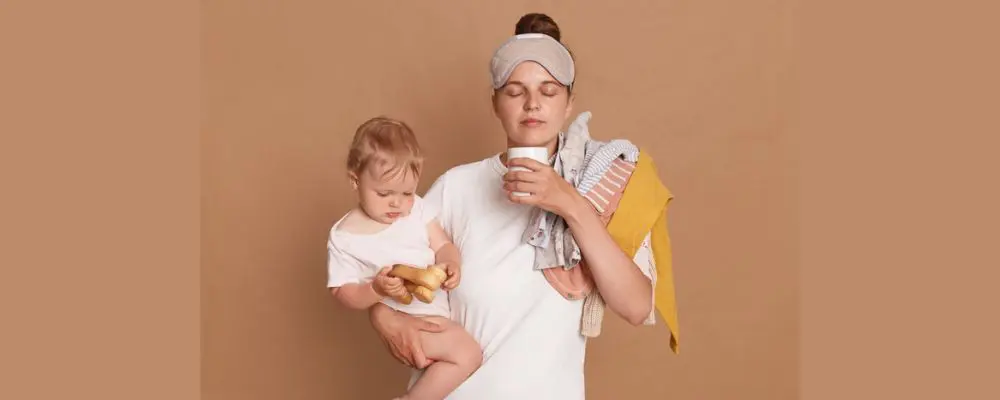Introduction:
New mothers are so preoccupied with taking care of their infants that they often neglect their own needs. Unfortunately, the hormonal changes that occur after giving birth make it much more challenging to do, and as a result, you will probably experience some illnesses. Postpartum Hives also known as postpartum acne are one such issue.
When you develop a bumpy skin rash, known as hives, it is typically the result of an allergic reaction to something or a psychological issue like extreme stress. You can get postpartum hives or pregnancy rash even if you’ve never had them before and don’t have any allergies. However, hives usually go away as quickly as they appear.
Let’s discuss what postpartum hives are, why are stretch marks bumpy when to seek medical attention, and how to stop postpartum itching.
What are Postpartum Hives?
Postpartum hives are skin rashes that are itchy, red, or skin-colored. These are commonly seen on the arms, back, and feet and are also known as weals, nettle rash, and welts. Postpartum hives are most common in women after delivery. Due to hormonal fluctuations during pregnancy, women who’ve never had Hives or any allergies may begin to develop the condition. Irrespective of its name, the condition may also develop due to non-pregnancy-related reasons. The reason why it’s called “Postpartum Hives” is that it develops after delivery.
When the body’s immune system comes into contact with allergens, histamine (from small capillaries) and other chemicals are released into the blood. Histamine, in turn, causes blood vessels to dilate, allowing plasma to enter the skin. This fluid accumulates in the skin, causing inflammation and itchy rashes on the surface.
They are also frequently itchy, but the severity varies from mild to severe. While most people get small rashes, some get hives the size of a dinner plate. Hives come in a variety of shapes, including round, oval, worm-like, and irregular. Hives are an indication that your immune system is out of balance. The prevalence of postpartum acne is higher in females as compared to males. And due to hormonal changes in the body, after delivery, chances of Hives developing and being more severe are also common.
Are Postpartum Hives contagious?
The good news is that Hives are not contagious, so the fetus cannot contract them. Postpartum hives may be caused by an infection or virus in rare cases, however, you will not spread your hives to your baby or any other family members.
What Causes Postpartum Hives?
Postpartum hives or postpartum acne, despite their name, can happen for other reasons than pregnancy. They are referred to as pregnancy rash because they occur after giving birth and some women may have never experienced symptoms of Hives before their postpartum period. The following are some of the most common causes of postpartum hives:
Allergy:
One of the most common causes of postpartum hives is an Allergic reaction. No, you are not allergic to your new baby: If you have never had allergies or only have very mild allergies, you should be aware that pregnancy can exacerbate them. During pregnancy, one-third of women’s asthma and allergy symptoms worsened.
This is possible because the hormonal rollercoaster you’re on while pregnant can mess with your immune system. All of these changes in your body can result in a pregnancy rash.
Changes in your diet during (and after) pregnancy may affect your gut health. This can sometimes cause the immune system to go into overdrive, resulting in allergies.
Also read: Combatting postpartum food allergies.
Because your body is more sensitive after pregnancy, you may experience postpartum hives. This can result in an allergic skin reaction if you are exposed to common allergens such as:
- Chemicals
- Dyes
- Perfumes
- Dust
- Pollen
- Mold and mildew
- Animal fur and dander
- Latex
- Bug bites or stings
- Medicines such as aspirin, ibuprofen, and antibiotics (like amoxicillin and penicillin)
Stress:
Did you know that stress can trigger pregnancy rash in some people? Caring for a baby immediately following pregnancy is not easy. Being a new parent can cause stress, lack of sleep, panic attacks, anxiety, and other symptoms. Such mental strain can manifest as a physical reaction in the form of postpartum acne on your body.
Infections:
It is easier to catch the flu or a cold while pregnant. Certain germs may enter your system when your body is vulnerable during pregnancy and then cause immune system distress after the baby is born. Genital infections contracted during childbirth can also cause hives after pregnancy. Germs entering during delivery can cause infections such as bacterial infections, urinary tract infections, mononucleosis, and so on. This may cause a skin reaction such as a pregnancy rash.
What are the Symptoms of Postpartum Hives?
While taking care of your body during pregnancy is important, continuing to do so after pregnancy is equally important. There are several symptoms of postpartum hives that you should be aware of:
- Bumpy skin that is usually red, pinkish, or skin-colored.
- One of the most common symptoms of postpartum hives is a pregnancy rash on the skin of body parts such as your face, arms, and legs.
- Certain patches of your skin develop a rough texture, similar to eczema.
- A cluster of bumps on your skin i.e., postpartum acne turns white when pressed.
- The formation of raised welts.
- Flat bumps on the skin, which may run together.
- Scratchy patches of skin that itch.
Why are Stretch Marks Bumpy?
With postpartum hives, you can temporarily get stretch marks even if you’ve never had them before and even if you don’t have allergies. People often wonder why are stretch marks bumpy.
Stretch marks may feel slightly raised and itchy leading to pregnancy rash. These rippled, streaky lines in your skin come in a variety of colors. Over time, they fade from red or pink to purplish-blue to thinner, paler, scar-like streaks. You might not notice them as much. Scars that form on top of your skin may feel like a bump, but stretch marks form beneath the top layer of your skin, leaving an indentation.
Face Itchy During Pumping Or Lactating Anaphylaxis
Lactation anaphylaxis (LA), also known as breastfeeding anaphylaxis, is an allergic reaction like a pregnancy rash to the milk ejection reflex (MER). The reaction usually happens within minutes of latching, pumping, or hand expressing, but it can happen up to 30 minutes later. The precise cause is unknown. The most common explanation is that hormonal changes in a lactating parent cause immune cells called mast cells to release chemicals that can cause an allergic reaction. Because symptoms are often mild at first presented as postpartum acne, and rashes, and may not be associated with milk expression. With each disappointment, symptoms may worsen.
Anaphylaxis medications include epinephrine, steroids, and famotidine. An antihistamine, such as Benadryl, is frequently prescribed.
How to Stop Postpartum Itching?
Itching due to pregnancy rash can be exhausting. Although these problems are common for new mothers, you don’t want to have to deal with them. You may not necessarily need medical treatment, however, in serious cases, the physician might prescribe these medicines as part of your treatment if you are looking at ways how to stop postpartum itching:
- Steroid skin cream (like betamethasone valerate)
- A steroid medication (like pheniramine)
- Cream or lotion with anti-itch steroids (like prednisolone in cases of serious swelling and itching)
- An EpiPen for administering allergy shots
- A drug known as ursodeoxycholic acid (or Udiliv, only if the cause is a serious liver imbalance)
How to Manage Postpartum Hives?
Even if the pregnancy rashes are minor, having a plan for postpartum hives treatment can be extremely beneficial as knowing how to stop postpartum itching. Preparing for situations like these ensures that you are not caught off guard when they occur and, instead, prepares you to face them with greater vigor. Here are some ideas to consider for post-pregnancy hives treatment:
Medical treatments:
- To get relief from the postpartum rash, use medical creams such as steroid creams, anti-itch lotions, and so on. However, to ensure proper care for both you and your child, you should consult your doctor about the safety of these creams while breastfeeding.
- Antihistamines, which are drugs used to treat allergies, are examples of medications. Steroid medication can also be used. Check with your doctor to ensure your safety of the same.
- Getting allergy shots and keeping an EpiPen on hand.
Natural Treatments:
- To get rid of the effects, use wet, soaked wraps.
- Having someone assist you with the baby so that you can manage your stress and get enough rest.
- Taking a relaxing bath with cool to lukewarm water, depending on your preference can help with postpartum acne.
- Wearing loose, comfortable clothing. Weight gain after pregnancy is normal, and your old clothes may no longer fit as well.
- Keep track of your allergies and try to avoid any allergens that could disrupt your body’s mechanisms toward the pregnancy rash.
- As you learn how to be a parent, be gentle and patient with yourself. Don’t ignore your own needs.
Also read: Postpartum Rash: Causes, Duration, and Solutions
Summary:
Postpartum hives (Postpartum acne) are a common problem that many women face following childbirth. Pregnancy rash appears when the body’s already compromised immune system reacts to allergens or infections. Postpartum acne is also commonly caused by stress and hormonal changes.
While hives aren’t necessarily dangerous, they are a source of discomfort that you can try to avoid with enough forethought and planning. Hives usually, go away on their own, so there’s no need to panic. If you’re experiencing postpartum hives, don’t put off seeking treatment. Your physician or dermatologist can assist you in making a diagnosis and suggesting ways to manage your itching so that it does not keep you awake at night.




